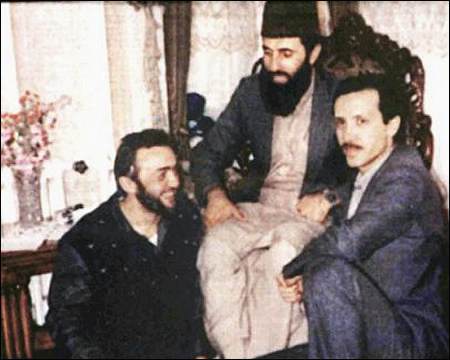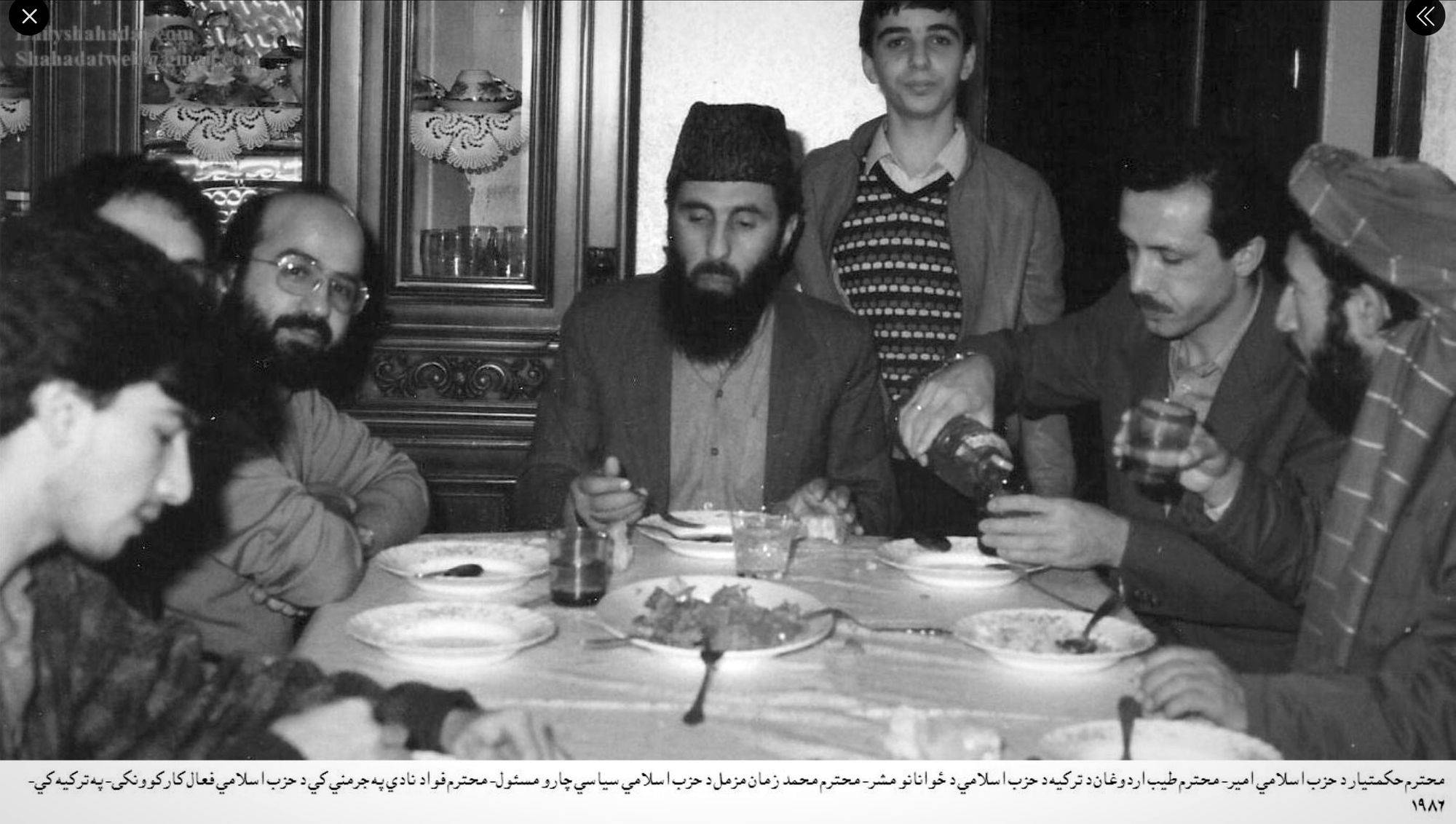A world of mediation, alliances and ideological amalgamation, the resurgent Islamic emirate aims to gain legitimacy in the international system
The Taliban are more careful today than twenty years ago in building the state and diplomatic ties. Two decades of ‘war on terror’ have offered a phenomenal income to corrupt regime, undermining democracy at various latitudes.
The United States' ambition to lead the democracy camp receives a harsh blow. The political skidding taking place in the Afghan theatre calls into question the relations between democracies and authoritarianism.
[Revised English version of the original article published in Italian on Il Domani daily on 20 August 2021.]
The Taliban could not have imagined a better propaganda stunt to denounce the ‘false corrupt democracy’: the brawl among the Palace praetorians to grab the bags stuffed with dollars abandoned on three off-road vehicles by President Ghani while fleeing towards Abu Dhabi. Ashraf Ghani, who until yesterday on TV was making a mockery of ‘coward politicians’ scurrying away from danger, was the first to slip away with 170 million in cash, soon imitated by his retinue (in a video message Mr Ghani denied taking any money). Having gone without pay for months, the soldiers surrendered. Unable to speak any language other than English, the governor of the Central Bank recounted the panic of the political leaders, who rushed straight to the airport elbowing their way to the safety of cargo planes, and explained via twitter to the Taliban where the country’s reserves are.
Without an evacuation plan, the democracy imported with Enduring Freedom is melting away, leaving behind militiamen who promise nothing less than stability, inclusion, free press and education for women (under shari’a, of course). Herein lies the problem: the direction of events had been clear for a long time, but only a few years ago when talking about failure in Afghanistan people were looked at with suspicion, while today we wonder in shock how it could happen. Democracy collapses while sovereignty remains: some 250,000 casualties later, the reconquest of the Islamic Emirate of Afghanistan is a trauma that marks a shift in the axis of international relations.
Three years to three days
Will jihadists flock into the lands of the Emirate? Hard to say, as the West has lost local information sources, and hunters have become game. But one thing is clear: we are no longer in the days of al-Zarqawi – tempered as a leader of foreign fighters in Afghanistan, then instigator of the Iraqi sectarian war and Daesh – who defined himself as 'born in the jihad and therefore ‘global’. A letter sent to him by the central command of al-Qa'ida was rather clear with respect to objectives that today could give the optical illusion of a reflected mirror: to expel the Americans, establish an emirate, destabilize the neighbouring countries, extend the emirate. The reality, however, is that in these hours the diplomacies of the neighbouring powers insist on the appreciable signs of responsibility coming from the new leaders.
The Taliban’s stern brand of Islam detaches itself from the execration that jihadism reserves to national borders, burning passports and condemning all bonds to the impious and apostates. Of course, only the Emirate, where the Koranic law is in force, is dar al-sulh (the land where there is agreement), but the winners must stick to a register of modesty: no rabid crowds, no bombastic rhetoric inciting to convert the lands of infidelity into dar al-islam. Their predecessors had to fight three years for Kabul, the new Taliban took it in three days. Imbued with pragmatism, collegially organized and without charismatic excesses, they exercise the demeanour of those who know the value of consensus. No alternatives are in sight, and the reasoning works somehow as follows: if the condemnation of China’s systematic crimes against their Uighur brothers comes solely from the West, then the Taliban have adhered to geopolitical rational calculus, which makes them containable and perhaps even amalgamable.
This vision is rather short-sighted, and not only because it is quite plausible that Daesh, well present in Afghanistan, will resume attacks, trying to draw with blood the lines of ethno-linguistic division that the ‘new Taliban’ have successfully overcome. The fact is that back when they established their first emirate in the 1990s, the Taliban did not rush to tear down the Durand Line, which the colonial powers drew in the form of a national border separating Pakistan’s tribal territories from Afghanistan, the heart of the Pashtun-speaking region. Starting with the campaign against opium cultivation, they instead worked to gain international legitimacy, reclaiming the UN seat which had remained occupied by the Rabbani regime they overthrew. They even came close to establishing relations with the U.S. on the Unocal pipeline project, which was derailed by Hillary Clinton’s ‘feminist’ turn in American foreign policy.
Islamic Republic vs Islamic Emirate
At the negotiating table in Doha, the government camp defined itself as republican, united under the national flag, now flown against the banners hoisted by the Taliban. The Republic is contrasted with the Taliban emphasis on the Emirate – the land of those who have the authority to rule, a term with distinctive historical-religious and doctrinal connotations. However, like the notion of Islamic republic (and the more ambiguous one of ‘Islamic state’), the constitution of an emirate consisting in the government through Islamic law of a territory within internationally recognized borders, can be seen not as an end-state, but as a junction, a passage dictated by specific historical circumstances. It is precisely to these circumstances – more than to the public demeanour or to the degree of moderation that the Deobandist school allows the Taliban in applying the shari’a – that it will be necessary to focus attention, noting significant differences with the world of twenty years ago.
As paradoxical as it may sound, it is precisely democracies (that is, those political systems anchored to the inviolability of fundamental individual and collective rights with respect to state sovereignty, that do not make war on each other and that often, as a result of an increasingly challenged hegemony, we still tend to consider synonymous with the International Community) that are in trouble today: so much in trouble that at times they find themselves under siege even from an ideological point of view. While political scientists measure an erosion of democratic standards around the world, in the first two decades of the new millennium different forms of authoritarianism have consolidated, fuelled by a wide variety of ideologies (including the ‘managed democracy’ born in Putin’s Russia, later spreading in the form of sovereignism) and projecting their respective power aspirations in an international arena that is marked by growing geo-strategic rivalries. Much has been said about the friendly relations between China and the Taliban, about the support received from Pakistan, about the satisfaction with which Moscow celebrates the ‘monumental US fiasco’, about how relations with the Iran of the mullahs have improved. Khomeini was the first, after the 1979 revolution, to seek in the constitution of the Islamic republic a conciliatory response between the foundation of the law and the imperatives of the political order.

Much has been written about the role that the Gulf countries, Saudi Arabia in primis, have historically played in forging and funding a generation of jihadists who have made history, from Algeria to Chechnya, passing through Bosnia Herzegovina. Less has been said – and this is a paradox considering that the negotiations with the Taliban have been hosted in Doha, which offers key support to US evacuation flights – about the role of that other part of the Sunni Islamic world that refers to the Muslim Brotherhood, and that is reflected in the foreign policies of Qatar and Turkey. The latter, in particular, offers an evident authoritarian synthesis of nationalism and religious conservatism: an autocracy that practices the unilateral projection of force in various regional theatres with growing frequency and intensity. Increasingly present in the Sahel (where France has announced a partial military withdrawal, while the Minister of Religious Affairs of the junta in Mali has defined his country as an Islamic republic), Ankara is playing a direct military game in Somalia as well as in North-West Syria, with a large number of men deployed side by side with Qaedist formations that in these hours are rejoicing for the Taliban victory. Mind you, we are talking about al-Qaeda twenty years later, an increasingly articulated and diversified organization, capable of equipping itself with long-term regional and national strategies, often abandoning early revolutionary expectations to embrace existing power relations (e.g., landowners).
Nowhere as in Syria (i.e., Idlib) Turkey, the second army of the Atlantic Alliance of democracies, has shown itself capable of reconditioning jihadist militiamen, incorporating them in formations that have proved decisive for its strategy. In order to expand their territorial base, the new Taliban have also integrated networks close to the Brotherhood in non-Pashtun areas. It is probably to this world of mediation, tactical alliances and ideological amalgamations that following their victory the Taliban can look with confidence for a de facto and de jure legitimacy in the international order. From what we can see, the Taliban are showing more attention to state-building today than they did twenty years ago, and they will do what is in their power to (re)present a larger national formula for governing the country. They are aware of the challenge of providing services while being listed as a terrorist formation, and therefore excluded from credit lines. Two decades of war on terror have provided a phenomenal rent to corrupt regimes, which have undermined democracy at different latitudes to the point of their own implosion. America’s ambition to be the leading democracy has been dealt a severe blow. The political skidding taking place around the Afghan theatre calls into question the relations between democracies and authoritarianisms.
Acknowledgements:
English translation of the original article published in Italian on Il Domani daily on 20 August 2021.
Cover photo: a young Recep Tayyip Erdoğan have supper with Hezb-e Islami leader, America's favourite mujahedin, and soon-to-become 'the butcher of Kabul' Gulbuddin Hekmatyar in 1986, unspecified location. Credit DailyShahadat.com
